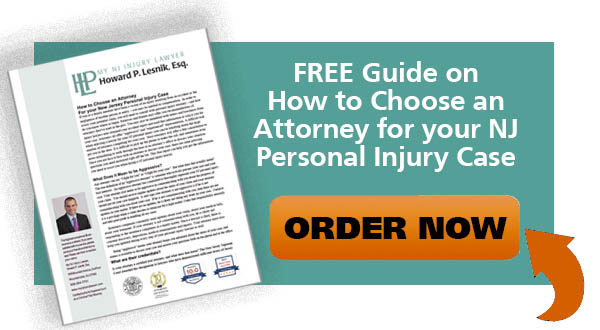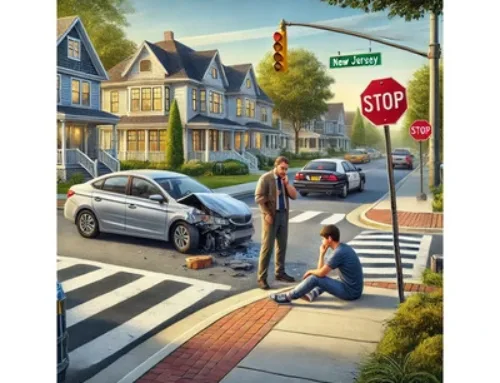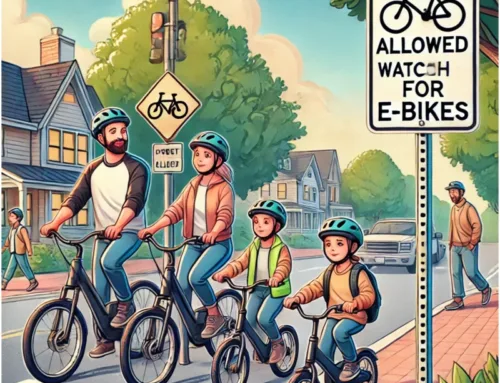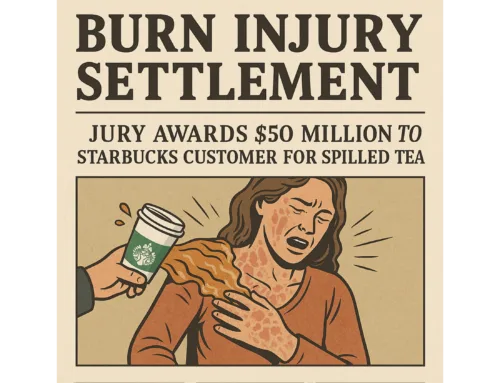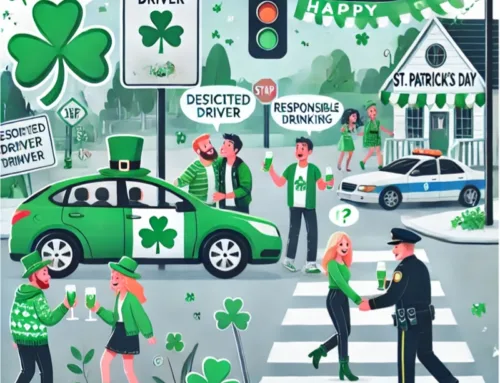When you first begin the process of seeking compensation for your injuries after a truck accident, the insurance adjuster representing the trucking company will most likely try to convince you that hiring a lawyer is unnecessary and expensive, or that your claim will be resolved more quickly and efficiently if you don’t “go to the trouble” of getting a lawyer. In reality, however, injured plaintiffs who work with an attorney receive more money on average in compensation for their injuries than accident victims who pursue their claims unrepresented, even after legal fees and costs are factored in. The insurance adjuster would much rather you go into the injury claim process unrepresented in the hope that your inexperience with the legal process and the stress of your injuries will render you overwhelmed and easier to take advantage of.
One of the most important tasks that your attorney will perform for you is interacting with the insurance company. Once you have hired a lawyer, the insurance adjuster must channel all communication through him rather than contacting you directly. Not only does this remove a significant source of stress from your shoulders while you focus on recovering from your injuries, but it also helps prevent the insurance adjuster from tricking you into saying something inadvertently damaging to your case (which he will be recording as evidence). When you do need to provide information to the insurance company – in the form of a statement, response to interrogatories, a deposition, or by submitting to a medical examination by a doctor on the insurance company’s payroll – your attorney can either be present or help you prepare, letting you know what to expect and how to avoid the insurance company’s traps.
Your lawyer will handle all the administrative and bureaucratic details in connection with your injury case, which can often be daunting to anyone without experience. He will initiate the process of filing a lawsuit, securing your right to sue in the event that settlement negotiations break down, and file any necessary documents with the court. He can also help deal with any snags regarding your health insurance, Medicaid, or Medicare, ensuring that your medical bills are paid, and your treatment is uninterrupted.
Gathering the evidence needed to build your case can be a complex and time-consuming process; your attorney will be able to handle this for you, and so it is essential to begin working with a lawyer as early into the claim process as you can, while the evidence is still intact, and events remain fresh in the minds of witnesses. Your lawyer will obtain a copy of the police report from your accident, get interviews of any witnesses, and gather any photographic evidence available. Photos of your vehicle, the accident site, and even your injuries may be essential to proving key points in your case, and the information contained in such photographs is highly time-sensitive and must be captured before any changes occur. Your attorney will also collect any other documents needed to support your case and assemble a list of questions for the truck driver to answer.
 Perhaps the most fundamental role that your attorney will play in your injury case is in fighting for a successful resolution involving fair compensation for your injuries. Most often, this means negotiating a settlement directly with the insurance adjuster. The settlement negotiation process is generally more expedient than a trial, though it can still take months to resolve. Your attorney will need to convince the insurance adjuster that compensating you adequately settlement is less risky for the insurance company than allowing the case to go before a jury. The evidence that your lawyer has collected for a possible trial will come into play here, as your attorney argues the strength of your case and the likelihood that the insurance company could suffer a costly defeat in court. Insurance adjusters are professional negotiators and have a vast repertoire of rhetorical tricks to convince you that your claim is weaker than it actually is, or that an unreasonably low settlement figure is the best you can expect. Having an experienced personal injury lawyer on your side of the negotiating table is an invaluable asset in the settlement negotiation process, equalizing the scales of justice.
Perhaps the most fundamental role that your attorney will play in your injury case is in fighting for a successful resolution involving fair compensation for your injuries. Most often, this means negotiating a settlement directly with the insurance adjuster. The settlement negotiation process is generally more expedient than a trial, though it can still take months to resolve. Your attorney will need to convince the insurance adjuster that compensating you adequately settlement is less risky for the insurance company than allowing the case to go before a jury. The evidence that your lawyer has collected for a possible trial will come into play here, as your attorney argues the strength of your case and the likelihood that the insurance company could suffer a costly defeat in court. Insurance adjusters are professional negotiators and have a vast repertoire of rhetorical tricks to convince you that your claim is weaker than it actually is, or that an unreasonably low settlement figure is the best you can expect. Having an experienced personal injury lawyer on your side of the negotiating table is an invaluable asset in the settlement negotiation process, equalizing the scales of justice.
If direct negotiation fails, your lawyer’s experience becomes even more vital. Some cases will go through mediation or arbitration – more formalized negotiation processes intended to resolve an injury case without a trial. Both processes involve an impartial third-party with legal experience helping the process along; in mediation, that third party acts as a facilitator, while in arbitration he or she takes the place of a judge and jury. If your case makes it into the courtroom, your attorney takes center stage once again, presenting your case through the evidence he has collected and fighting to win you the fair compensation you deserve.
The representative from the insurance provider representing the trucking company is almost certain to contact you very promptly. The insurance adjuster or investigator who speaks to you will most likely be very friendly and assure you that he wants to help get your claim resolved quickly and easily, and all he needs to make that happen is for you to answer a few questions and sign some release forms. He will probably assure you that you don’t need a lawyer, and that the process will be easier, and you will save money without an attorney. However, none of this is true. An insurance adjuster’s job is to protect his employer’s financial resources from “unnecessary losses” like paying out injury claims. No matter how friendly and helpful the insurance adjuster tries to appear, he is not on your side and is not concerned with your best interests. Instead, he hopes to take advantage of the average injured claimant’s lack of experience with the injury claim process to trick accident victims into making mistakes that will hurt their cases and reduce the amount of compensation they can recover.
One of the first things the insurance adjuster will do upon being assigned your case is try to obtain as much information as he can – not just about the circumstances of the accident, but about you. He will try to get you to sign medical release forms that will give him access to your entire medical record, so he can look for any pre-existing injuries or conditions that he can use to explain away the symptoms of your accident injuries. He will look you up in the Claim Index Database System used by almost all insurance companies to find out about any other insurance claims, past or present, that you have been involved in. He will ask you for a statement – which will be recorded – and carefully review your words for any inconsistencies or admissions of fault that he can turn against you. In some cases, the insurance adjuster may even arrange for video surveillance of your activities, in the hope of capturing an image that he can twist to put at odds with your statements about your injuries.
There are a few ways that the insurance adjuster hopes to be able to use the information he collects against you. If he can trick you into saying something in your statement that sounds like an admission of fault, he can use that to deny or minimize your claim. New Jersey law uses the standard of comparative negligence – in other words, the percentage of responsibility you bear for an accident that was mostly caused by someone else reduces the amount of compensation you can collect by the same percentage. (If, for instance, a woman was struck by another driver and her injuries were valued at $100,000, but she was determined to be 20 percent responsible for the accident, the most she could be awarded in damages would be $80,000.) If the insurance adjuster obtains unlimited access to your medical history, he can comb through your records for past injuries and try to argue that (for instance) an old high school sports injury is the reason for your ongoing neck pain, rather than the truck accident. If he gets a recorded statement from you, especially one given shortly after your accident when you were still shaken or overwhelmed – or worse, on pain medication for your injuries – he can seize on any minor or imagined inconsistency as a means of calling into question your credibility and an excuse to deny your claim.
Another tactic the insurance adjuster may try is making you a quick offer that is much, much less than your claim is worth. He may give you some nonsense about “closing your claim file” to try to pressure you into accepting a claim offer, even though this threat is meaningless. If he can’t get you to accept his unfairly low settlement offer, he’ll start dragging the process out, delaying your claim until you lose patience and give up, or until the two-year statute of limitations has run out on your ability to sue. This, among other reasons, is why working with a personal injury attorney is so critical; your lawyer can file the initial paperwork for your lawsuit right away in order to secure your right to go to court, if necessary, while still working to settle for the fair value of your injury claim. Even if you begin the proceedings to sue, you can still accept a settlement any time before a final verdict is reached. With the help of an experienced personal injury attorney, that settlement is more likely to compensate your needs fairly.
Contact MyNJInjuryLawyer Howard P. Lesnik
If you or a loved one suffered an injury in an accident in NJ, you should contact an attorney familiar with handling these claims. An experienced NJ Injury Lawyer will know how to obtain medical records, videos, photographs, experts, locate witnesses and contact the insurance company so you can make a claim for your injuries.
My NJ Injury Lawyer Howard P. Lesnik, Esq. offers complimentary strategy sessions to address any issue or questions you may have for your injury claim in NJ.
Please contact NJ Injury Lawyer Howard Lesnik, Esq., immediately if you were involved in an accident. I personally handle NJ personal injury cases on a regular basis. Please contact me now by email, by phoning 908.264.7701, or by completing the form to the right to schedule your complimentary 30-minute strategy session. Call me direct and I will answer 5 questions that you have about your potential claim.


